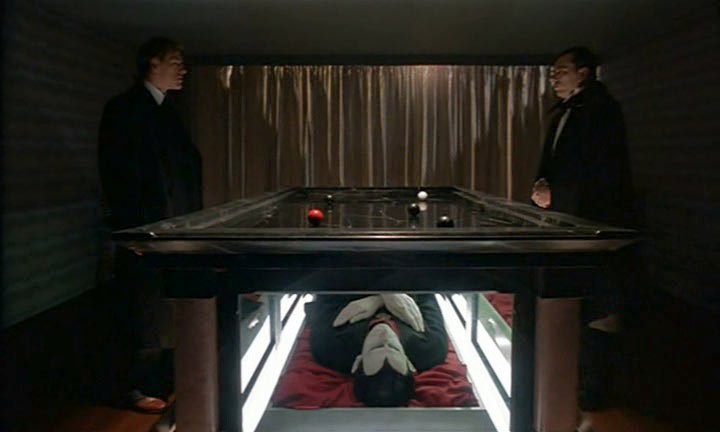BONUS: 'Nosferatu in Venice' AKA 'Vampire in Venice' [1988]
This quasi-sequel to 'Nosferatu the Vampyre' sees Klaus Kinski return as the unkillable bloodsucker, this time with a shock of white hair and normal teeth, for the most part. It's worth checking out this film's entry in Wikipedia, as it seems the production is far more fascinating than the dirge I watched last night.
Professor Catalano (Christopher Plummer in a Van Helsing role) has been summoned to Venice to investigate the possibility that Nosferatu has been, or is about to be, resurrected. When he quickly deduces that this notion is false, a seance is organized to conjure him up anyway. Nosferatu rises in Spain (it appears) and makes his way to Venice for some unfinished business, mostly involving killing people and/or seducing women.
Considering the frequent changes of director and the apparent sh!tstorm Kinski provoked on set, it's a wonder that the film is as coherent as it is, in the most part. Plummer and Donald Pleasence (as a priest) are both good here, though obviously wasted and slumming it. Kinski shows none of the lonely pathetic figure he portrayed previously, seeming content instead to swan around Venice looking thoroughly pissed off to be there. The scenes of his sexual assault of several nude women are uncomfortable to watch, especially in light of their traumatic memories of the filming.
Venice looks good throughout, as it should, and a lot of vampire trope boxes are checked off here - bats, rats, wooden stakes, crucifixes, etc. In other circumstances, something wonderful could have come from this. Instead, we get a rapey, non-horrific, morose vampire movie, free to view on Tubi if you so desire.

